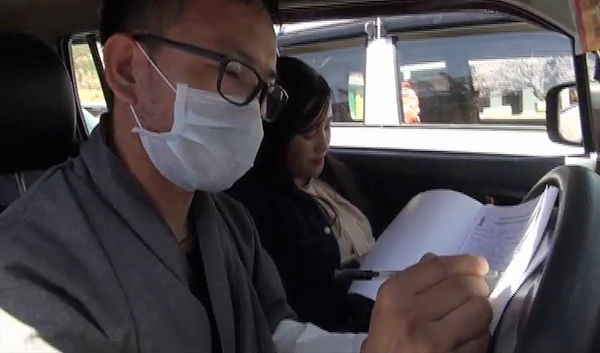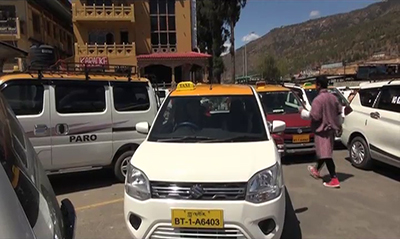 The Road Safety and Transport Authority (RSTA) has directed the taxi drivers across the country to maintain a log book with details of the passengers availing their services amidst the Coronavirus Disease (COVID-19). This will help in tracing the people exposed to the virus if any passenger tests positive.
The Road Safety and Transport Authority (RSTA) has directed the taxi drivers across the country to maintain a log book with details of the passengers availing their services amidst the Coronavirus Disease (COVID-19). This will help in tracing the people exposed to the virus if any passenger tests positive.
Basic information like name, nationality, citizenship identity card number and mobile numbers of the passengers are recorded in the logbook. Bhutan Taxi Association in collaboration with Red Cross distributed the logbooks to all the taxi drivers across the country. Except for passengers who have difficulty in writing, the passengers are given the logbook to write their details.
“It has been four days now since we have started using the logbook. Directives from the RSTA was released by 12th of this month. Taxi Association and Red Cross are distributing the books to all the taxi operators for free,” said Namgay from Bhutan Taxi Association in Paro.
 However, some taxi drivers came across passengers who are reluctant to share their details.
However, some taxi drivers came across passengers who are reluctant to share their details.
“People feel insecure and surprised when we ask them the contacts and other required details. Some even use harsh words to us. We explain to them about why we are noting their details, and then some give us while some don’t. Some of my columns are blank because they say they don’t have it,” said PemaDorji, a Taxi Driver in Paro.
“People might think that taxi drivers may misuse the contact numbers. It’s not like what they think, we are only following directives from the relevant offices. I personally also think we must comply with the government’s orders in order to fight the virus,” added Palden, also a Taxi Driver in Paro.
“Some of the passengers say that they don’t have an identity card or some even say they don’t have a phone number. I think they deliberately say it feeling insecure. We assure the passengers that our intentions are not to misuse their contact details. We explain to them that it is the government’s move,” said Tshering Dorji, also a Taxi Driver.
Meanwhile, some of the passengers welcomed the initiative.
“We know the virus and its ways of spreading and if we keep records of visiting places, phone numbers and other details it will be easier to trace us in a worst-case scenario. I did in the morning also when I was visiting the hospital,” said Dorji Chezom, a passenger.
“It is just our phone number, ID number and our destination. This will not only help combat the virus but even in accident cases it is much convenient,” added Lhamo, also a passenger.
At the end of the day, the logbook record is submitted to the relevant office in the Dzongkhag.
There are over 400 taxis in Paro and 7000 taxis across the country.
Namgay Wangchuk









